
Commentary on the Verse, “And We did not create the heavens and the earth and what is between them save with real ground”: (i.e.) “I did not create them for the sake of just this which ye see; nay, but for the sake of the essential meaning and everlasting providence which ye see not.” تفسیر این آیت کی و ما خلقنا السموات والارض و ما بینهما الا بالحق نیافریدمشان بهر همین کی شما میبینید بلک بهر معنی و حکمت باقیه کی شما نمیبینید آن را
هیچ نقاشی نگارد زین نقش
بی امید نفع بهر عین نقش
Does any painter paint a beautiful picture for the sake of the picture itself, without hope of conferring benefit?
بلک بهر میهمانان و کهان
که به فرجه وارهند از اندهان
Nay, (he paints it) for the sake of guests and young people who by diverting themselves (with it) may be relieved from cares.
شادی بچگان و یاد دوستان
دوستان رفته را از نقش آن
From his picture (arises) the joy of children and the remembering of departed friend’s by their friends.
هیچ کوزهگر کند کوزه شتاب
بهر عین کوزه نه بر بوی آب
Does any potter make a pot in haste for the sake of the pot itself and not in hope of the water?
هیچ کاسه گر کند کاسه تمام
بهر عین کاسه نه بهر طعام
Does any bowl-maker make a finished bowl for the sake of the bowl itself and not for the sake of the food?
هیچ خطاطی نویسد خط به فن
بهر عین خط نه بهر خواندن
Does any calligrapher write artistically for the sake of the writing itself and not for the sake of the reading?
نقش ظاهر بهر نقش غایبست
وان برای غایب دیگر ببست
The external form is for the sake of the unseen form; and that took shape for the sake of another unseen (form).
تا سوم چارم دهم بر میشمر
این فواید را به مقدار نظر
Count up these corollaries to the third, fourth, or tenth in proportion to (your) insight.
همچو بازیهای شطرنج ای پسر
فایدهی هر لعب در تالی نگر
As (for example) the moves in chess, O son: behold the result of each move in the next one.
این نهادند بهر آن لعب نهان
وان برای آن و آن بهر فلان
They made this (move) for the sake of that concealed move, and that for the next, and that (again) for such and such.
همچنین دیده جهات اندر جهات
در پی هم تا رسی در برد و مات
Even so (proceed), having perceived reasons within reasons, one after the other, in order that you may arrive at victory and checkmate.
اول از بهر دوم باشد چنان
که شدن بر پایههای نردبان
The first is for the sake of the second, like mounting on the steps of a ladder;
و آن دوم بهر سوم میدان تمام
تا رسی تو پایه پایه تا به بام
And deem the second to be for the sake of the third, (and so on) to the end, in order that you may arrive, step by step, at the roof.
شهوت خوردن ز بهر آن منی
آن منی از بهر نسل و روشنی
The desire to eat is for the sake of the semen: that semen is for the sake of procreation and the light (which glows in the eyes of parents).
کندبینش مینبیند غیر این
عقل او بیسیر چون نبت زمین
The man of dull sight sees naught but this: his intelligence is without motion, like the plants of the earth.
نبت را چه خوانده چه ناخوانده
هست پای او به گل در مانده
Whether the plant is summoned (to move) or not summoned, its foot remains stuck fast in the mud.
گر سرش جنبد پیر باد رو
تو به سر جنبانیش غره مشو
If its head move with the motion of the wind, go, be not deceived by its moving its head.
آن سرش گوید سمعنا ای صبا
پای او گوید عصینا خلنا
Its head says, “We obey, O zephyr!” Its foot says, “We refuse to obey: let us alone!”
چون ندارد سیر میراند چون عام
بر توکل مینهد چون کور گام
Since he (the man of dull sight) does not know how to move (on the Way to God), he advances like the vulgar, stepping (forward) on trust, like a blind man.
بر توکل تا چه آید در نبرد
چون توکل کردن اصحاب نرد
Consider what comes of acting on trust in warfare: (it is vain) like the trust of dice-players.
وآن نظرهایی که آن افسرده نیست
جز رونده و جز درندهی پرده نیست
But those insights that are not frozen (dense and dull) are nothing if not piercing and veil-rending.
آنچ در ده سال خواهد آمدن
این زمان بیند به چشم خویشتن
He (such a one) sees with his own eye at the present moment that which will come to pass in ten years.
همچنین هر کس به اندازهی نظر
غیب و مستقبل ببیند خیر وشر
Similarly, every one sees the unseen and the future, (both) good and evil, according to the measure of his insight.
چونک سد پیش و سد پس نماند
شد گذاره چشم و لوح غیب خواند
When the barrier in front and the barrier behind are removed, the eye penetrates and reads the tablet of the Unseen.
چون نظر پس کرد تا بدو وجود
ماجرا و آغاز هستی رو نمود
When he (such a one) looks back to the origin of existence, the past circumstances and beginning of existence display themselves (to him).
بحث املاک زمین با کبریا
در خلیفه کردن بابای ما
(Namely), the disputation of the terrestrial angels with the (Divine) Majesty as to making our Father (Adam) the Vicegerent.
چون نظر در پیش افکند او بدید
آنچ خواهد بود تا محشر پدید
When he casts his eye forward he sees plainly that which shall be (all that shall come to pass) till the (Last) Congregation.
پس ز پس میبیند او تا اصل اصل
پیش میبیند عیان تا روز فصل
Therefore he sees back to the root of the root (the primal origin), and he sees forward clairvoyantly to the Day of Decision.
هر کسی اندازهی روشندلی
غیب را بیند به قدر صیقلی
Every one, according to the measure of his spiritual enlightenment, sees the things unseen in proportion to the polishing (of the heart’s mirror).
هر که صیقل بیش کرد او بیش دید
بیشتر آمد برو صورت پدید
The more he polishes, the more he sees and the more visible does the form (of things unseen) become to him.
گر تو گویی کان صفا فضل خداست
نیز این توفیق صیقل زان عطاست
If you say that that (spiritual) purity is (bestowed by) the grace of God, this success in polishing (the heart) is also (derived) from that (Divine) bounty.
قدر همت باشد آن جهد و دعا
لیس للانسان الا ما سعی
That (devotional) work and prayer is in proportion to the (worshipper’s) aspiration: Man hath nothing but what he hath striven after.
واهب همت خداوندست و بس
همت شاهی ندارد هیچ خس
God alone is the giver of aspiration: no base churl aspires to be a king.
نیست تخصیص خدا کس را به کار
مانع طوع و مراد و اختیار
God’s assignment of a particular lot to any one does not hinder (him from exercising) consent and will and choice;
لیک چون رنجی دهد بدبخت را
او گریزاند به کفران رخت را
But when He brings some trouble on an ill-fated man, he (that man) ungratefully packs off in flight;
نیکبختی را چو حق رنجی دهد
رخت را نزدیکتر وا مینهد
(Whereas), when God brings some trouble on a good-fortuned (blessed) man, he always (approaches and) abides nearer (to God).
بددلان از بیم جان در کارزار
کرده اسباب هزیمت اختیار
In battle the pusillanimous from fear for their lives have chosen the means (resource) of flight,
پردلان در جنگ هم از بیم جان
حمله کرده سوی صف دشمنان
(While) the courageous, also from fear for their lives, have charged towards the ranks of the enemy.
رستمان را ترس و غم وا پیش برد
هم ز ترس آن بددل اندر خویش مرد
Rustams (heroes) are borne onward by (their) fear and pain; from fear, too, the man of infirm spirit dies within himself.
چون محک آمد بلا و بیم جان
زان پدید آید شجاع از هر جبان
Tribulation and fear for one’s life are like a touchstone: thereby the brave man is distinguished from every coward.
Special Offers
by: Reza about (category: Masnavi, Persian Poetry)



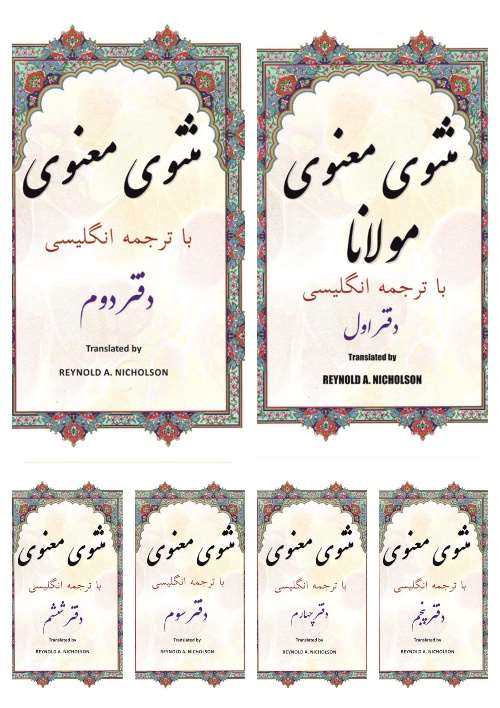
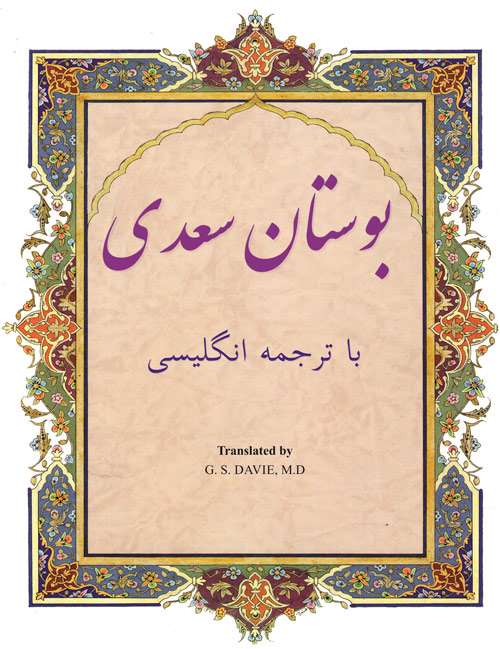
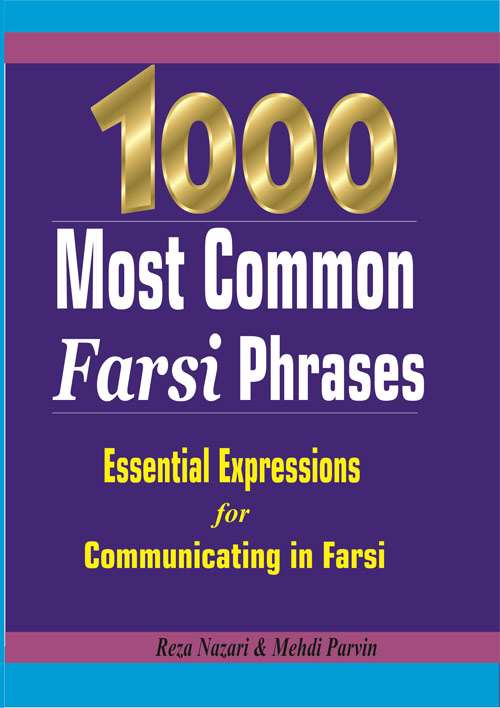
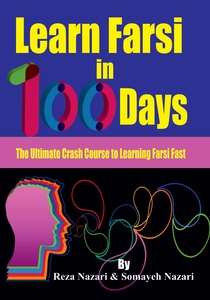







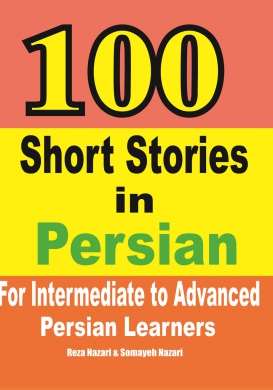

What people say about "Commentary on the Verse"?
No one replied yet.